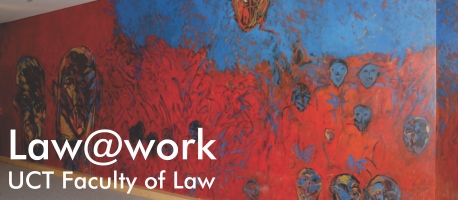
This course introduces the core principles of international humanitarian law (IHL) — the body of law governing armed conflict. It examines how IHL protects civilians, detainees, and other non-combatants, and how it regulates the conduct of hostilities. Through case studies from current conflicts, participants will explore key rules, issues, and challenges of compliance. The course also examines the relationship between IHL, human rights law, and international criminal law, highlighting contemporary issues in the protection of civilians in today’s conflicts.
Join us for a fifteen-hour course, held over five days.
When and where?
This course is not currently scheduled.
Check out our Course Overview page to see all our current courses. Or join our mailing list to stay up to date with newly-scheduled courses.
Course outline
Even in war, there are laws. This course provides a comprehensive introduction to international humanitarian law (IHL) – the laws of armed conflict – and explores how it seeks to humanise warfare and protect those who are not, or are no longer, taking part in hostilities.
Participants will gain a clear understanding of the sources, principles, and application of IHL. The course examines the distinction between combatants and civilians, the regulation of means and methods of warfare, the treatment of detainees and prisoners of war; and the law’s protection of women. The course also examines how IHL is enforced, the role of the International Committee of the Red Cross (ICRC), and accountability for war crimes.
Through practical examples drawn from recent conflicts, the course engages with contemporary challenges such as urban warfare, humanitarian access, non-state armed groups, terrorism, and the use of drones and cyber operations. It situates IHL within the broader landscape of international criminal and human rights law, offering participants an integrated understanding of how the international community seeks to limit human suffering in war.
Who will benefit from this course?
This course is designed for lawyers, policymakers, humanitarian practitioners, and academics working in or alongside the fields of international law, conflict, and protection.
It will be of particular interest to:
- Legal professionals dealing with war crimes, accountability, or humanitarian law;
- Government officials and policymakers engaged in defence, foreign affairs, or humanitarian response;
- Professionals in international organisations and NGOs involved in civilian protection, humanitarian assistance, or human rights monitoring;
- Military, peacekeeping, and security sector personnel responsible for compliance with the laws of armed conflict;
- Researchers, postgraduate students, and educators focusing on international law, conflict, or human rights.
Presenter
Dr Orly Stern is a human rights lawyer, researcher and consultant, with two decades of experience working across the African continent. Orly has consulted for international organizations, companies, governments, research institutions and NGOs, and has published extensively in her field.
Orly holds a PhD in international humanitarian law from London School of Economics, and a Masters in international human rights law from Harvard Law School. She has served as a visiting fellow of practice with the Oxford Institute for Ethics, Law and Armed Conflict, Blavatnik School of Government, Oxford University, and has held a senior fellowship with the Harvard Humanitarian Initiative, Harvard School for Public Health. She has taught international criminal law at the University of Cape Town.
Her book, Gender, Conflict and International Humanitarian Law: A Critique of the Principle of Distinction, was awarded the International Committee of the Red Cross’ inaugural prize for best published work on international humanitarian law in Africa. Her most recent book on Women and War Economies was published in April 2025.
How much?
R8,250 per person
Certificate
A digital certificate of attendance from UCT will be issued to those who attend the full course.
Please note that the digital certificate can only be viewed on a secure portal. It cannot be downloaded or printed. You will have the option of ordering a hard copy of the certificate at your own cost, including the cost of the courier fee. More information is available here.
No certificate will be issued without the full course fee having been received. Please allow up to three weeks after the end of the course for certificates to be processed.
How to sign up
Complete and submit the registration form. You will then be given the payment information. Please note that registrations will not be considered complete until payment has been made.
One or two days before the course, we will send you the Zoom link. You will need to register and use a password to access the course.
Registrations close three days before the course starts.
Download the brochure.
You may also be interested in:
- Business and human rights
- The punishment of international crimes and atrocities: An introduction to international criminal law

